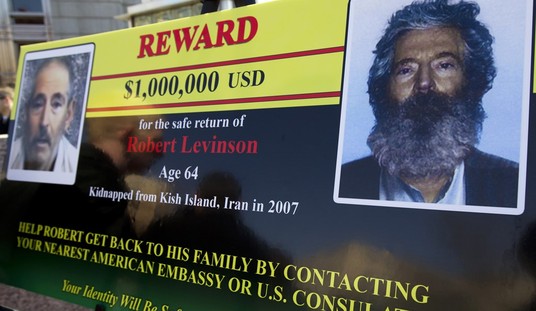Suppose you opened your own home-based business offering childcare in your community to your friends, acquaintances and new clients as word of mouth spreads.
The parents approach you, ask your hours and rates, what you provide versus what they bring or supplement for their child, and together you reach an agreement that works for both parties.
Now imagine finding out that because one of the families you’re serving receives low-income assistance to offset the cost of childcare so they can work outside the home, the state now requires you to accept union representation you don’t need or want.
Without your consent, Service Employees International Union (SEIU) has been designated as your exclusive bargaining representative, able to dictate the terms of how you run your home-based childcare business — even though you’re not even a member of the union.
It seems outrageous and unfair, but this is exactly what’s going on for thousands of childcare providers across the State of Washington.
Katherine Miller is a licensed childcare provider in Washington, contracting with the state’s Department of Early Learning to provide services to children under one of the agency’s myriad assistance programs. She does not want to be a member of SEIU, nor does she want to be represented by the union or be associated with the union leaders’ political activities.
Washington state has a message for Katherine: Tough luck.
And she has a response for the state: See you in court.
Katherine is currently embroiled in a protected lawsuit with the state of Washington demanding it recognize her First Amendment rights of free speech and association to decline a relationship she doesn’t desire with a labor union whose values she doesn’t agree with.
Unfortunately, the federal courts — most recently the 9th Circuit Court of Appeals — have been unjustly standing in her way by refusing to reasonably apply Supreme Court precedent.
In 2014, the U.S. Supreme Court ruled in Harris v. Quinn that homecare providers whose clients are subsidized by Medicaid are not “public employees” and cannot be forced to accept union representation.
Miller – also an in-home care provider – has not been a member of SEIU since 2014, but because the Harris ruling has not been broadly applied beyond Medicaid-paid homecare providers, she’s still forced by Washington state law to accept SEIU representation in bargaining matters, and is correspondingly linked to the union’s political activities.
(Interestingly, Washington’s state government gave a half nod to the Harris decision, discontinuing the deduction of agency fees from in-home care providers such as Miller.)
With legal representation provided by the Freedom Foundation and the National Right to Work Legal Defense Foundation, Katherine Miller and another childcare provider, Cynthia Mentele, in 2015 filed a federal lawsuit against state officials and SEIU.
The district court rejected their argument in 2016, but while the plaintiffs awaited their appeal to the 9th Circuit, the Supreme Court issued its landmark ruling on forced government union participation, Janus v. AFSCME, in 2018.
In Janus, the court overturned a much-criticized 44-year-old ruling to affirm that government employees cannot be compelled, as a condition of employment, to either become a full union member or pay so-called “agency fees” to offset the cost of union bargaining on their behalf.
Forced dues, the justices agreed, is a violation of their First Amendment rights. Janus was the logical successor to Harris and opened the door to free all government employees from unwanted union intrusion in their lives.
Prior to Janus, Miller, Mentele and thousands of other home childcare providers could make a compelling logical case for why it violated their free speech rights to have a union speak for them against their wishes. Now, in the wake of Janus, the legal rationale is incontrovertible.
If compelling government employees to pay dues or fees to a union they don’t support is a violation of their Constitutional rights, how could any reasonable person — or judge — conclude that forcing them to accept representation from the very same union is any more defensible?
And yet that’s precisely what the 9th Circuit ruled. Ignoring both Harris v. Quinn and Janus v. AFSCME, the country’s most overturned circuit court held in February 2019 that exclusive representation does not impinge on associational freedoms.
Cynthia Mentele, eager to assert her own First Amendment rights, has since ceased accepting childcare subsidies so that she is no longer a “partial” state employee.
Meanwhile, Katherine Miller — still working with the Freedom Foundation and National Right to Work Legal Defense Foundation — has appealed the 9th Circuit’s ruling to the U.S. Supreme Court, which is expected to announce soon whether it will hear the case.
Like Janus, Miller v. Inslee has the potential to free thousands of Americans across the country from government union tyranny once and for all.
Given that federal courts on the West Coast are thumbing their noses at the Supreme Court’s rulings in both Harris and Janus, a ruling by the court in Miller affirming the First Amendment rights of all in-home care providers to choose how they wish to be represented in their business is essential to provide consistency across the federal bench for all Americans, regardless of where they reside.
Ashley Varner is Vice President of Communications and Federal Affairs for the Freedom Foundation, a free-market organization committed to helping free government employees from forced unionization.














Join the conversation as a VIP Member